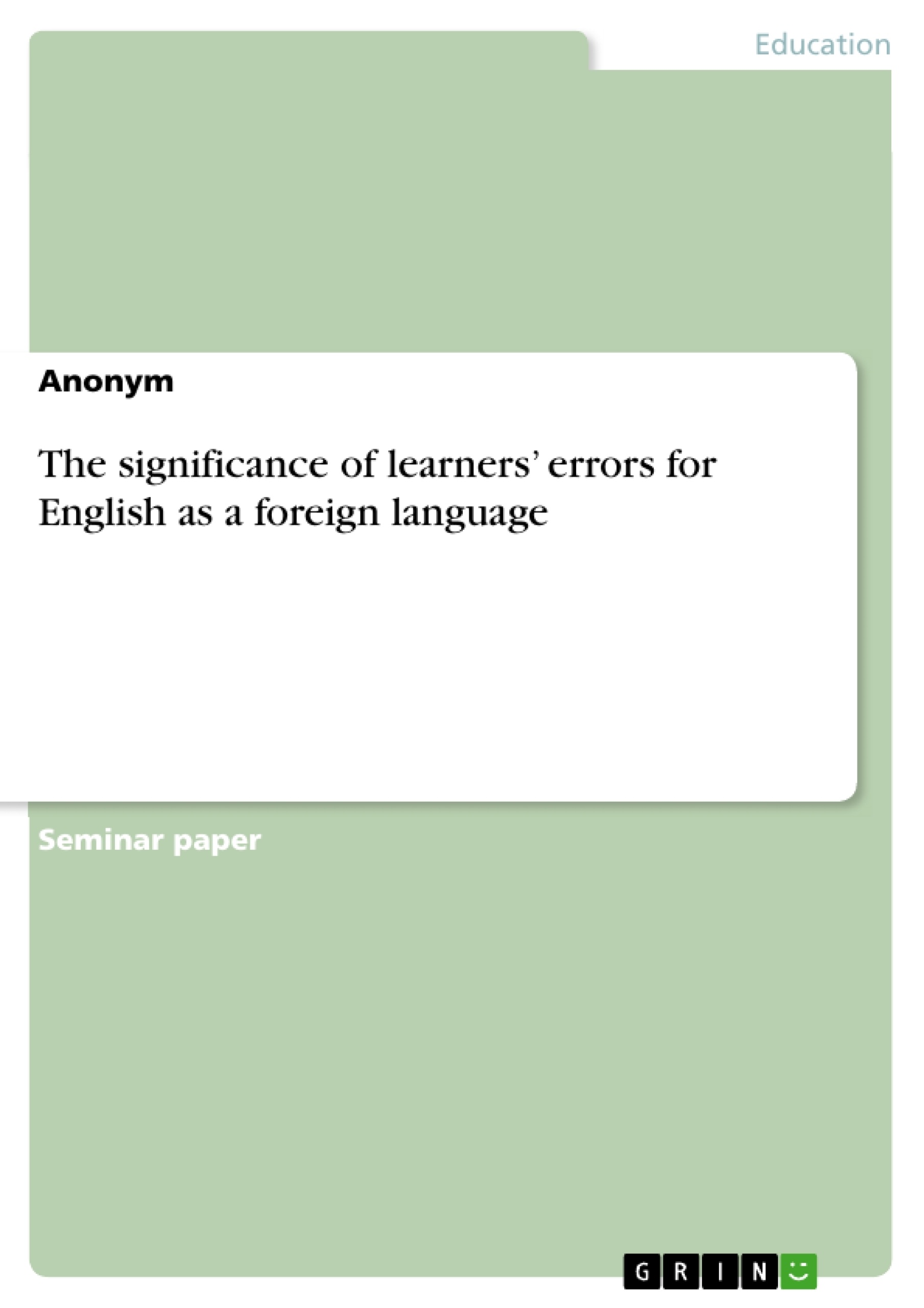The significance of learners’ errors and mistakes in the process of learning English as a foreign language has been widely discussed in the field of second language acquisition. This paper aims at examining how appropriate the approach of ‘error analysis’ is to characterize students’ errors in order to be able to adapt the content of school lessons according to their difficulties. To do so, the difference of ‘error’ and ‘mistake’ will be explained and important concepts of interlanguage and fossilization will be introduced. The second part of this paper will deal with the identification and classification of errors and will show possible ways of their treatment through providing corrective feedback. Finally, an authentic student material will be analyzed according to the ‘error analysis’ approach, through showing what kind of errors and mistakes can be found, and how they could be corrected. Furthermore, a feedback on improvement will be formulated.
Inhaltsverzeichnis (Table of Contents)
- Introduction.
- Errors
- Defining errors
- The behaviorist view
- The cognitive view
- The interlanguage view
- Errors vs. mistakes.
- Interlanguage (Selinker 1972)
- Fossilization
- Defining errors
- Error Analysis (EA)
- Errors in EA
- Identification of errors.
- Classification of errors
- Source of errors
- Interlingual and intralingual transfers.
- Context of learning.
- Communication strategies
- Types of errors
- Error correction.
- Learning from errors: providing corrective feedback
- Analysis of the student's errors.
- Explanation for correction.
- The students' task and its relation to the curriculum ......
- Feedback on improvement...
Zielsetzung und Themenschwerpunkte (Objectives and Key Themes)
This paper aims to explore the significance of learners' errors in the process of learning English as a foreign language (EFL) and to examine the effectiveness of "error analysis" in characterizing these errors. The paper aims to use this understanding to adapt school lessons to address students' difficulties.
- Defining and differentiating between errors and mistakes.
- Introducing the concepts of interlanguage and fossilization.
- Exploring methods for identifying, classifying, and correcting errors.
- Applying the "error analysis" approach to analyze a real-world example of a student's errors.
- Formulating feedback for improvement based on the analysis.
Zusammenfassung der Kapitel (Chapter Summaries)
- Introduction: This chapter introduces the paper's purpose, which is to investigate the significance of errors in EFL learning and the utility of "error analysis" in understanding and addressing them. It highlights the importance of teachers understanding errors to improve their students' language skills.
- Errors: This chapter provides a comprehensive definition of errors, contrasting the behaviorist and cognitive views. It introduces the concept of interlanguage and fossilization, explaining how language is learned and how errors can become fossilized.
- Error Analysis (EA): This chapter delves into the process of "error analysis," explaining how to identify, classify, and analyze errors. It explores the sources of errors, including interlingual and intralingual transfers, context of learning, and communication strategies.
- Error Correction: This chapter focuses on strategies for correcting errors, particularly the importance of providing corrective feedback. It discusses the role of the teacher in helping learners learn from their errors.
- Analysis of the student's errors: This chapter presents an analysis of a real-world example of a student's writing, examining the specific errors found and how they can be characterized using the "error analysis" approach.
- Feedback on improvement: This chapter summarizes the feedback provided to the student on their writing, highlighting the specific errors and offering recommendations for improvement.
Schlüsselwörter (Keywords)
This paper focuses on the analysis of learner errors in English as a foreign language (EFL), particularly within the context of education. Key concepts explored include "error analysis," interlanguage, fossilization, corrective feedback, and student writing assessment.
- Citation du texte
- Anonym (Auteur), 2015, The significance of learners’ errors for English as a foreign language, Munich, GRIN Verlag, https://www.grin.com/document/336690



